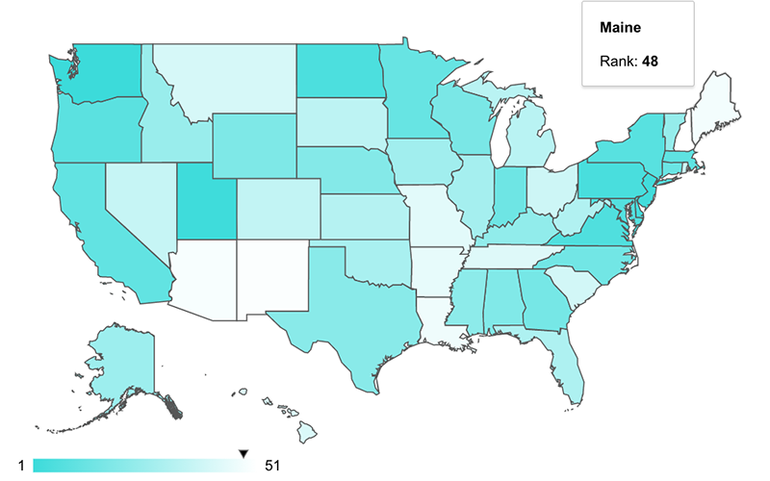Processing Your Payment
Please do not leave this page until complete. This can take a few moments.
- News
-
Editions
-
- Lists
-
Viewpoints
-
Our Events
-
Event Info
- Women's Leadership Forum 2025
- On the Road with Mainebiz in Bethel
- Health Care Forum 2025
- On The Road with Mainebiz in Greenville
- On The Road with Mainebiz in Waterville
- Small Business Forum 2025
- Outstanding Women in Business Reception 2025
- On The Road with Mainebiz in Bath
- 60 Ideas in 60 Minutes Portland 2025
- 40 Under 40 Awards Reception 2025
- On The Road with Mainebiz in Lewiston / Auburn
- 60 Ideas in 60 Minutes Bangor 2025
Award Honorees
- 2025 Business Leaders of the Year
- 2024 Women to Watch Honorees
- 2024 Business Leaders of the Year
- 2023 NextUp: 40 Under 40 Honorees
- 2023 Women to Watch Honorees
- 2023 Business Leaders of the Year
- 2022 NextUp: 40 Under 40 Honorees
- 2022 Women to Watch Honorees
- 2022 Business Leaders of the Year
-
-
Calendar
-
Biz Marketplace
- News
- Editions
- Lists
- Viewpoints
-
Our Events
Event Info
- View all Events
- Women's Leadership Forum 2025
- On the Road with Mainebiz in Bethel
- Health Care Forum 2025
- On The Road with Mainebiz in Greenville
- On The Road with Mainebiz in Waterville
- + More
Award Honorees
- 2025 Business Leaders of the Year
- 2024 Women to Watch Honorees
- 2024 Business Leaders of the Year
- 2023 NextUp: 40 Under 40 Honorees
- 2023 Women to Watch Honorees
- 2023 Business Leaders of the Year
- + More
- 2022 NextUp: 40 Under 40 Honorees
- 2022 Women to Watch Honorees
- 2022 Business Leaders of the Year
- Nomination Forms
- Calendar
- Biz Marketplace
Maine still among worst states for teachers' pay in WalletHub study
 Courtesy / WalletHub
In a WalletHub ranking of the best states for teachers, Maine came it at No. 48 out of 51 overall.
Courtesy / WalletHub
In a WalletHub ranking of the best states for teachers, Maine came it at No. 48 out of 51 overall.
When it comes to compensating teachers, Maine remains near the bottom as ranked by personal finance website WalletHub.
The 2020 scorecard puts Maine at No. 48 overall for teachers out of 51 states plus the District of Columbia. That puts Maine ahead only of Arizona (No. 49), New Mexico (No. 50) and New Hampshire (No. 51).
As with last year, the study looked at 25 measures of "teacher-friendliness" in the areas of opportunity and competition and academic and work environment.
At the head of 2020's class, Washington, Utah and New Jersey were No. 1, 2 and 3, respectively.
Maine's overall ranking slipped six places, from No. 42 last year. It fared even worse for opportunity and compensation, coming in at No. 50 in 2020, only ahead of New Hampshire in that category.
That ranking measures factors including average starting and regular salaries for teachers, income growth potential, the 10-year change in salaries, the average teacher pension and public school enrollment growth. Maine was also found to have the lowest annual salaries adjusted for cost of living, behind only New Mexico, Hawaii, Arizona and Florida.
The Pine Tree State did somewhat better in the academic and work environment category, which looks at factors including statewide school reopening and the existence of a digital learning plan, coming in at No. 18.
In this year when teachers across the country made an abrupt switch to online learning that many are still doing this fall, WalletHub financial writer Adam McCann noted that that the pandemic has made teachers' jobs even harder than usual.
"In some states, teachers are more fairly paid and better protected against against the current pandemic than in others," he wrote in remarks accompanying the findings. "Those states are less likely to face a revolving door of teacher turnover." The study aims to help educators find the best opportunities and teaching environments.
A separate report, published earlier this month by the Washington, D.C.-based Economic Policy Institute, shows how much public school teachers nationwide and in each state are paid in weekly wages relative to other college-educated workers even after controlling for education, experience and other factors known to affect earnings.
It found that public high school teachers in the United States earned around 19.2% less than other college-educated workers in 2019.
That was a slight improvement over a 22% so-called wage penalty a year earlier but substantially worse than a 6% wage penalty in 1996.
Mainebiz web partners
How much, on average, do we pay per pupil and how does this compare nationally? Maybe we are spending in the wrong places?









1 Comments